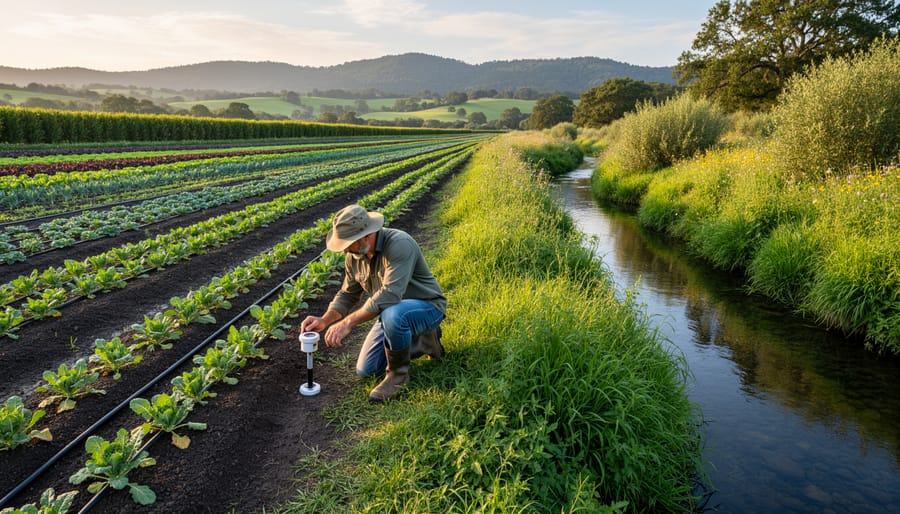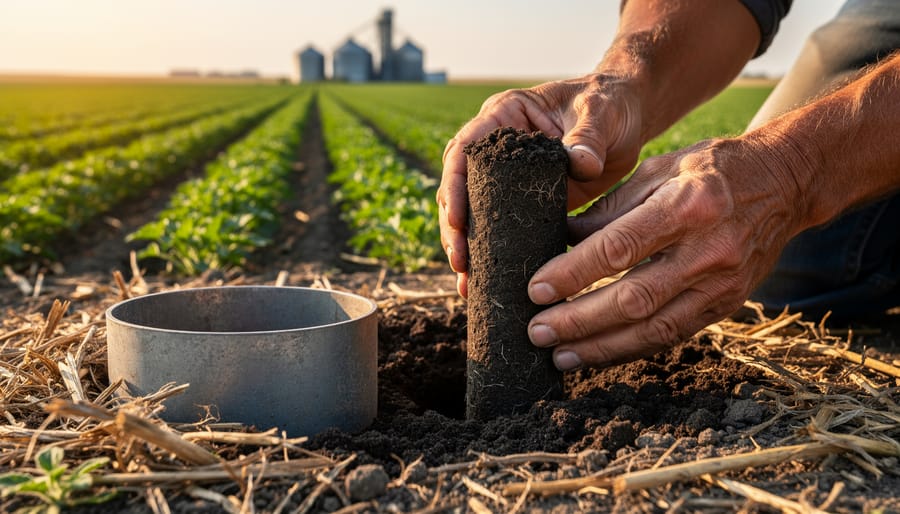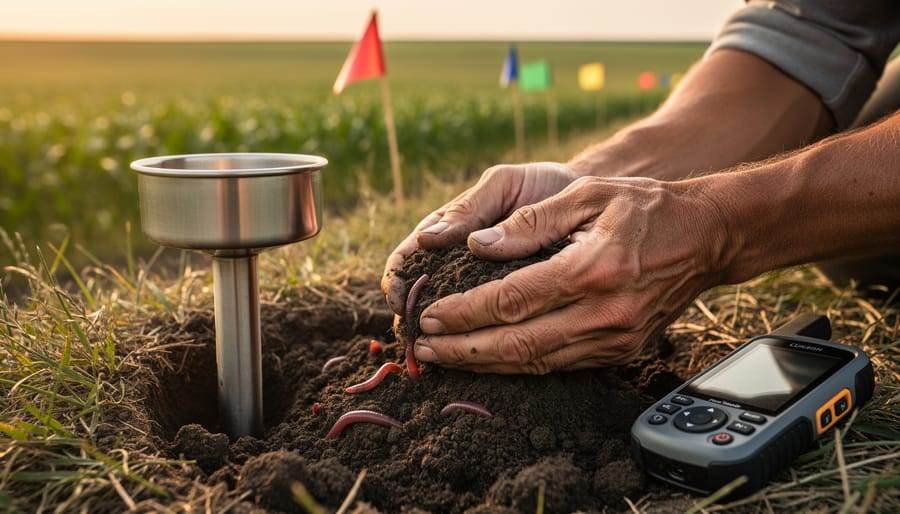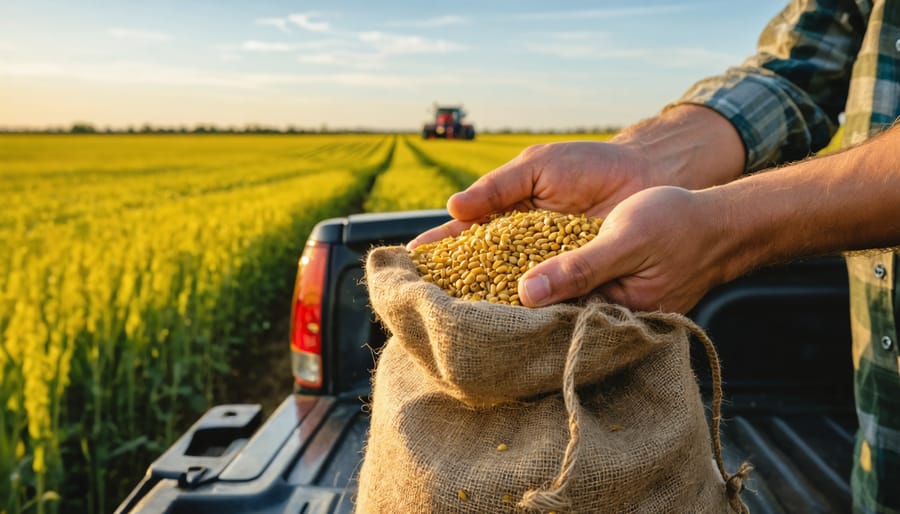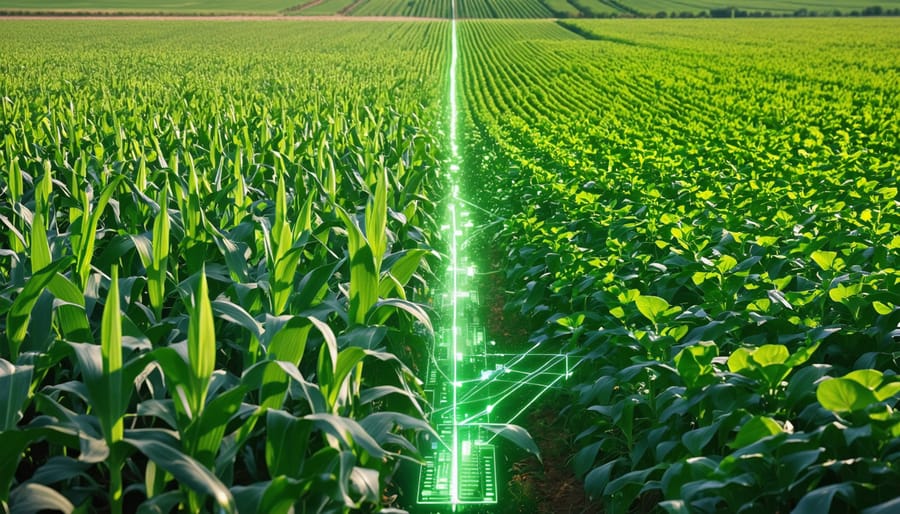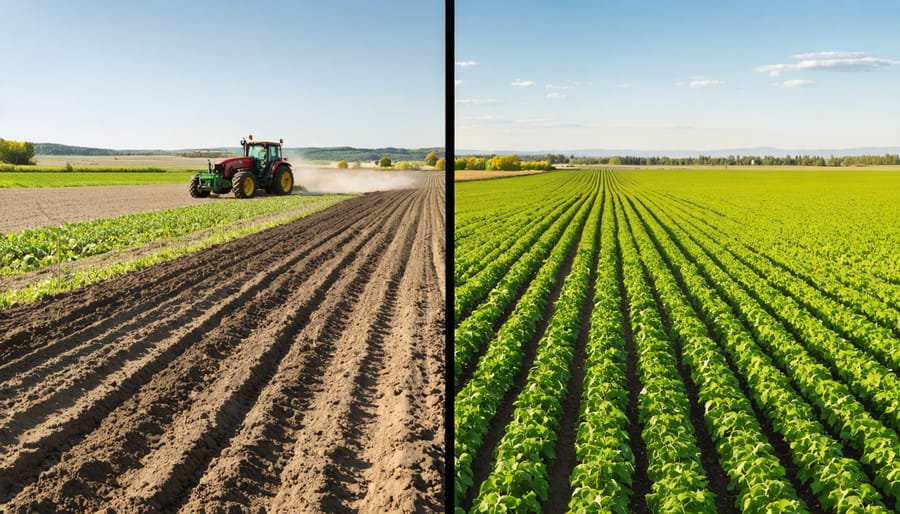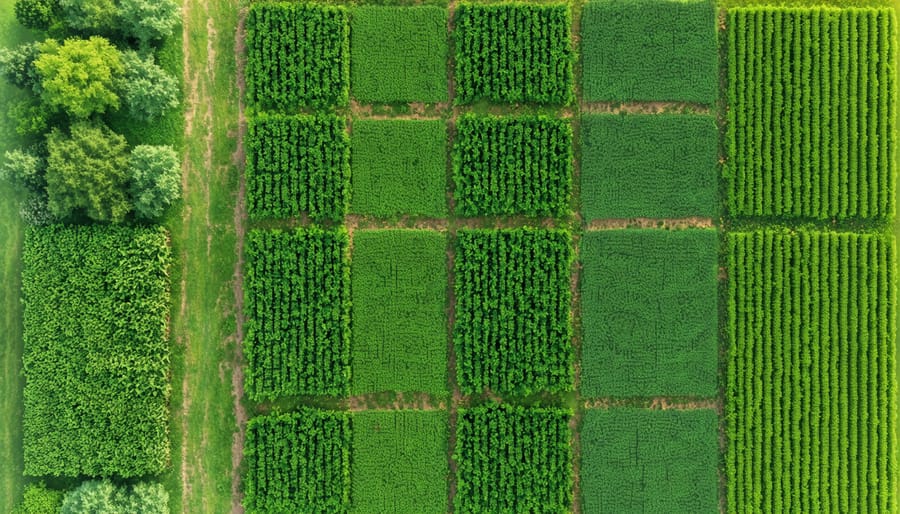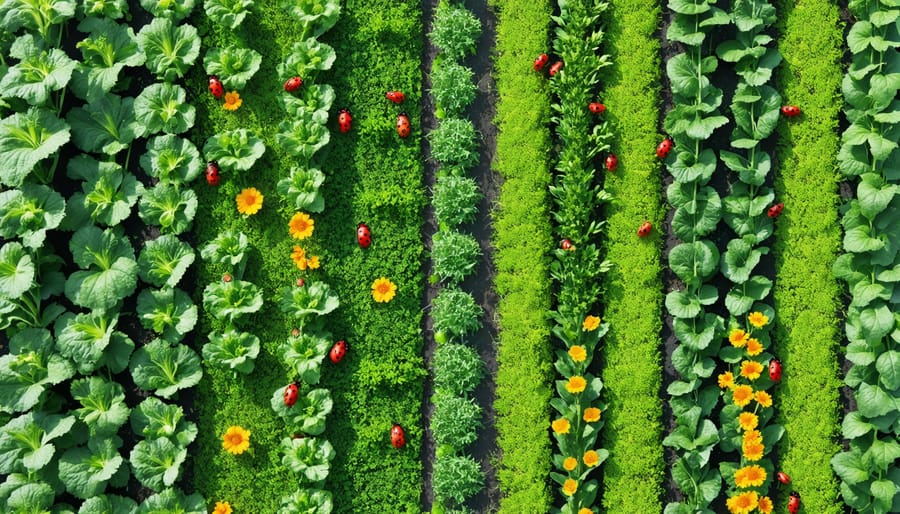Virginia’s landmark Consumer Data Protection Act (CDPA) represents a pivotal shift in North American data privacy regulation, offering valuable insights for Canadian agricultural operations navigating digital transformation. As Alberta farmers increasingly adopt smart farming technologies and digital record-keeping for organic certification, Virginia’s comprehensive framework provides a blueprint for protecting sensitive agricultural data while maintaining compliance with certification requirements.
The CDPA’s stringent consent requirements and data minimization principles align remarkably well with organic farming certification standards, particularly in managing soil testing records, crop rotation documentation, and supply chain traceability. For Alberta’s agricultural community, these regulations demonstrate how robust data protection can enhance rather than hinder organic certification processes, while building consumer trust and operational efficiency.
By examining Virginia’s approach to data privacy, Canadian farmers can proactively implement similar protective measures for their digital agricultural systems, ensuring both compliance with emerging privacy standards and strengthening their organic certification documentation. This strategic alignment between data privacy and organic farming practices positions Alberta’s agricultural sector at the forefront of sustainable, technology-enabled farming while safeguarding sensitive operational data.
Virginia’s Data Privacy Framework: Lessons for Canadian Organic Farmers

Key Requirements for Farm Data Protection
For Alberta farmers exploring Virginia’s data privacy framework as a model, several key requirements stand out that align with Canadian organic certification requirements. Farm operations must maintain detailed records of all data collection practices, particularly those involving soil testing, crop yields, and livestock management information. This includes implementing secure storage systems for sensitive farm data and establishing clear protocols for sharing information with third-party service providers.
Farm operators should focus on three critical areas: securing precision agriculture data, protecting worker information, and safeguarding customer records. This means using encrypted storage solutions for field mapping data, maintaining confidential employee records, and carefully managing direct-to-consumer sales information.
Regular audits of data handling practices are essential, with special attention to cross-border data transfers – particularly relevant for Canadian farmers working with U.S.-based agricultural service providers. Consider implementing a farm-specific data protection policy that outlines how information is collected, stored, and shared while ensuring compliance with both Virginia’s standards and Canadian privacy regulations.
Consumer Rights and Farm Data Management
Virginia’s data privacy laws have significant implications for farm data management, offering valuable insights for Canadian agricultural operations. Under these regulations, farmers maintain specific rights over their operational data, including the ability to access, correct, and delete information collected about their farming practices and yields.
For Alberta farmers, particularly those managing organic operations, these consumer protections serve as a model for safeguarding sensitive agricultural data. The law requires agricultural technology providers to obtain explicit consent before collecting farm data and ensures transparency in how this information is used and shared.
Key protections include the right to know what data is being collected during organic certification processes, control over data sharing with third-party vendors, and the ability to transfer data when switching service providers. These provisions are especially relevant for farms using precision agriculture technologies and digital record-keeping systems.
Canadian farmers can learn from Virginia’s approach by implementing similar data management practices, such as maintaining detailed data inventories and establishing clear protocols for data sharing with certification bodies and agricultural service providers. This proactive approach helps protect sensitive farm information while ensuring compliance with emerging privacy standards.
Implementing Privacy Standards in Organic Certification
Digital Record-Keeping Requirements
In Virginia’s evolving data privacy landscape, farmers engaging in digital certification processes must maintain comprehensive electronic records that meet specific requirements. These guidelines closely mirror best practices already familiar to many Canadian producers, making them particularly relevant for Alberta farmers looking to expand their market reach.
Electronic records must be stored securely with regular backups, and systems should include audit trails that track all modifications. Farmers are required to implement access controls, ensuring only authorized personnel can view or modify certification-related data. Documentation must be retained for a minimum of five years, with clear protocols for data disposal when records are no longer needed.
Key digital record-keeping requirements include:
– Detailed transaction logs for organic products
– Electronic copies of certification documents
– Digital audit trails for crop rotation and input usage
– Secure storage of customer data and privacy agreements
– Automated backup systems with encryption
For Alberta farmers, these requirements offer valuable insights into modernizing their own record-keeping systems. Many local producers have successfully adapted similar digital practices, finding that electronic systems actually streamline their certification maintenance while ensuring compliance with both Canadian and international standards.
To maintain compliance, farmers should regularly review their digital systems and update security measures as needed. This proactive approach helps protect sensitive information while supporting efficient organic certification management.
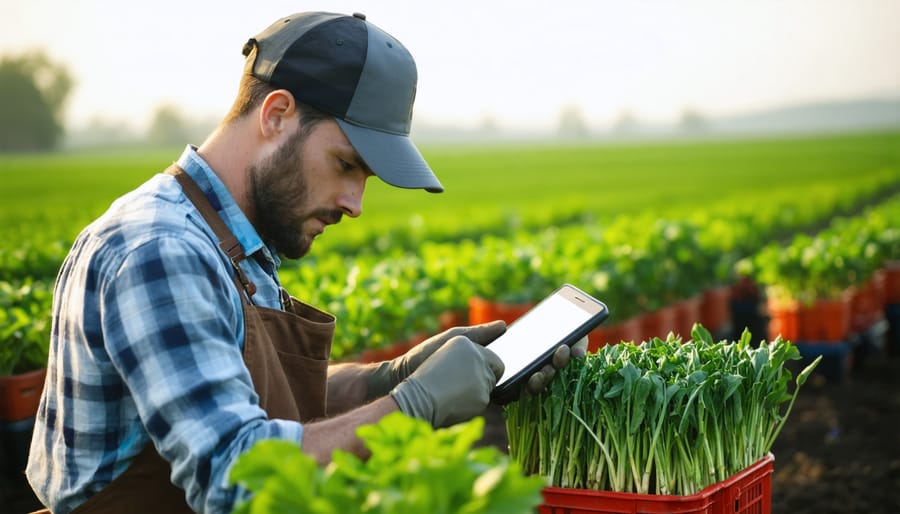
Data Security Measures for Certification Bodies
In today’s digital age, certification bodies must implement robust measures to keep certification data secure while processing organic farming applications. These organizations are required to maintain multi-layered security protocols, including encrypted data storage systems and secure file transfer methods that align with Virginia’s data privacy standards.
For Alberta farmers seeking organic certification, this means their sensitive farm data receives comprehensive protection throughout the certification process. Certification bodies must employ advanced authentication methods, regular security audits, and staff training programs to prevent unauthorized access to farm-specific information.
Key security measures include secure cloud storage with Canadian-based servers, two-factor authentication for all staff members accessing farmer data, and detailed access logs that track who views and modifies certification documents. Regular backup procedures ensure data preservation while maintaining strict privacy controls.
Local certification bodies have adapted these requirements to serve our agricultural community better, implementing practical solutions like secure farmer portals and encrypted communication channels. These measures protect everything from crop rotation plans to soil test results, ensuring our farmers’ proprietary information remains confidential while meeting Virginia’s stringent privacy requirements.
For small-scale operations, these security protocols provide peace of mind without adding unnecessary complexity to the certification process. The focus remains on supporting sustainable agriculture while maintaining the highest standards of data protection.

Alberta’s Approach to Agricultural Data Privacy
Regional Compliance Strategies
While Virginia’s data privacy laws may seem distant from Alberta farming operations, their compliance strategies offer valuable insights for Canadian agricultural businesses. By examining these approaches through the lens of Alberta’s agricultural policies, farmers can develop robust data protection practices.
Key strategies include conducting regular data audits of farm management systems, implementing secure storage solutions for crop and livestock records, and establishing clear protocols for sharing information with certification bodies. Consider creating a designated privacy officer within your operation to oversee compliance and maintain documentation.
For organic certification processes, maintain detailed records of data handling procedures, particularly regarding soil testing results, input applications, and harvest documentation. Implement strong password protocols for digital systems and secure physical storage for paper records.
Regular staff training on data handling best practices ensures everyone understands their role in maintaining privacy standards. Consider partnering with local agricultural associations to share resources and stay updated on evolving privacy requirements while maintaining the collaborative spirit of our farming community.
Future Privacy Considerations
As the digital agricultural landscape evolves, Virginia’s data privacy laws offer valuable insights for Canadian farmers preparing for similar regulations. Industry experts anticipate that Alberta and other provinces will likely adopt comparable privacy frameworks, particularly concerning farm data management and organic certification processes.
Forward-thinking agricultural operations should consider implementing data inventory systems and consent mechanisms now, rather than waiting for new legislation. This proactive approach allows farms to build trust with consumers while staying ahead of regulatory changes. Many Alberta farmers are already adopting digital record-keeping systems that align with Virginia’s standards, making future compliance more manageable.
Key areas to watch include regulations around soil testing data, crop yield information, and customer databases. Agricultural technology providers are developing privacy-compliant solutions specifically for Canadian farms, incorporating lessons learned from Virginia’s implementation. Industry associations recommend establishing clear data-sharing protocols with third-party vendors and creating transparent privacy policies that communicate how farm data is collected, used, and protected.
Remember that early preparation for enhanced privacy requirements can become a competitive advantage, particularly for organic producers who already maintain detailed documentation systems.
As we’ve explored Virginia’s data privacy laws, several valuable lessons emerge for Canadian organic farmers seeking to strengthen their data protection practices. The emphasis on transparent data collection and consumer consent aligns well with the principles of organic certification and can enhance trust between farmers and their customers.
For Alberta farmers, implementing similar privacy protection measures can provide a competitive advantage in the marketplace. Consider starting with a comprehensive audit of your current data handling practices, particularly focusing on customer information collected through CSA programs, online sales, and certification documentation.
Key action steps include developing clear privacy policies for your farm operation, securing digital records with robust encryption, and training staff on proper data handling procedures. Remember that protecting sensitive information isn’t just good practice – it’s increasingly becoming a necessity in modern agriculture.
Looking ahead, Canadian organic farmers should:
– Document all data collection processes
– Implement secure storage systems for both digital and physical records
– Regularly review and update privacy protocols
– Consider consulting with privacy experts familiar with agricultural operations
– Stay informed about emerging privacy regulations
By taking these proactive steps, Canadian organic farmers can build stronger, more resilient operations while maintaining the trust of their communities. Remember, protecting data is as crucial as protecting our soil and crops – it’s fundamental to sustainable farming in the digital age.


